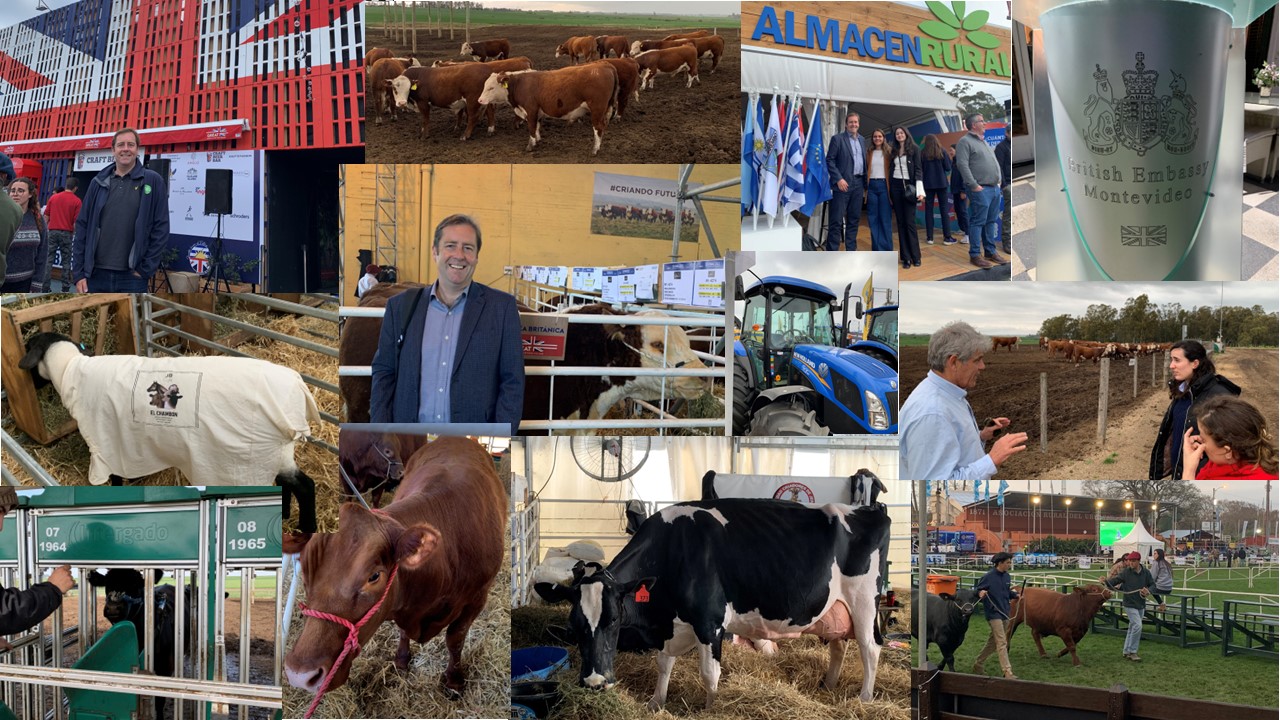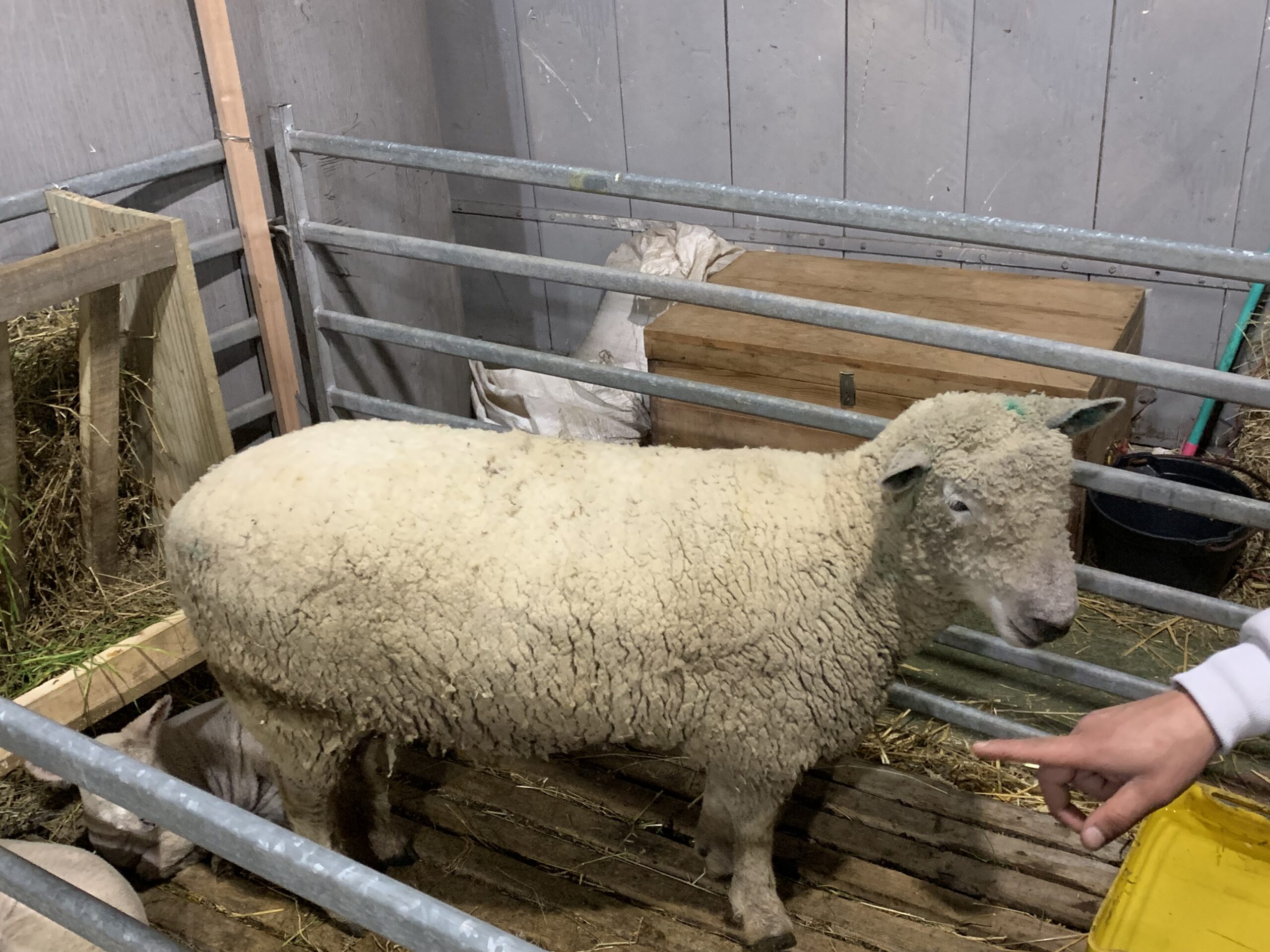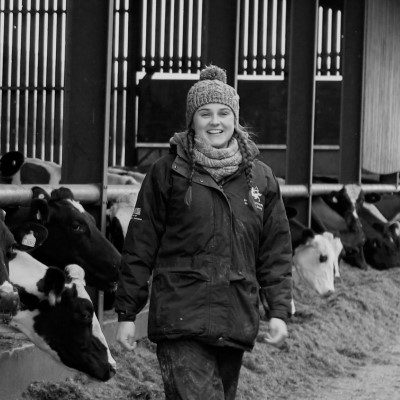CIEL | Blog:
The importance of global collaboration for innovation in the livestock sector
Phil Bicknell

It’s undeniable that in order for the livestock sector in the UK to become more sustainable, productive, and efficient, innovation is key.
However, the challenges UK livestock faces aren’t unique to this country but are issues that often need addressing worldwide. To understand more about the challenges and opportunities facing the livestock sector in South America and to fly the flag for UK Agri-Tech, I was recently fortunate to visit Uruguay on behalf of CIEL.
Organised by the Foreign and Commonwealth Development Office, the trip presented a unique opportunity to share knowledge with a wide range of professional bodies and experts from the meat and dairy sectors. Held in high regard, there was a lot of interest around innovation happening here in the UK and how food and farming is supported by the Government.
The visit also coincided with Expo Prado – Uruguay’s largest and most important national-level agricultural fair
I spent the majority of my time in the city of Montevideo visiting INIA’s (Instituto Nacional de Investigación Agropecuaria) research facilities at La Estanzuela. With a 100-year-plus history, the institute is at the forefront of agricultural research in Uruguay and operates across five different sites.
Seeing first-hand the work INIA is doing on measuring methane, forage-based rotations and dairying was a fantastic opportunity to compare and contrast the activity that we see across the CIEL network. Generally, there are similarities between agriculture in Uruguay and the UK. Cattle numbers are more or less the same, and both systems aim to make the most of forage.
In Uruguay, with many farms operating as forage-based systems, there is a real push for feed efficiency and the use of genetics to select performance-oriented characteristics of livestock.
However, uptake of technology does vary, reflecting the geography and industry structure. For example, robotic milking machines remain a rarity, still in the single figures, given the pasture-based nature of production systems. However, focusing on traceability is clearly something the industry is proud of, and enhanced data gathering, and analysis continues to fuel genetic improvement.
Understanding more about the environmental impact of livestock systems is prioritised across INIA’s livestock-based research projects, similar to much of the research carried out by CIEL Members. Collaboration is a key aspect of what we do at CIEL. It’s the bringing together of academia and industry that is the catalyst for innovation and it’s important that collaboration stretches globally.
The similarities demonstrated between both livestock systems and research projects, showcase there is a real opportunity to collaborate and discover solutions that will benefit our industry.
We look forward to continuing to work with our partners across the supply chain to scale up innovation in the agriculture sector worldwide, increase sustainable food production, drive net zero progress, and improve industry resilience.


Phil Bicknell, Director
After joining the CIEL team in 2021 as Head of business development, Phil became director in April 2023. He is responsible for steering CIEL’s strategic development to ensure we successfully deliver on our vision to accelerate innovation in the livestock and aquaculture sectors.
Growing up on the family livestock farm, Phil is an agricultural economics graduate from the University of Reading and his career includes a range of agri-food roles. Phil led the 50 strong market intelligence team at the Agricultural and Horticultural Development Board, equipping farmers and processors with the insight to manage market volatility, profitability and policy change. He was also chief economist at the National Farmers Union, spearheading the evidence to support a range of lobbying activity. Phil’s other roles included specialising in agri-trade issues at the US Department of Agriculture and advising a range of agribusiness clients with Bidwells.







